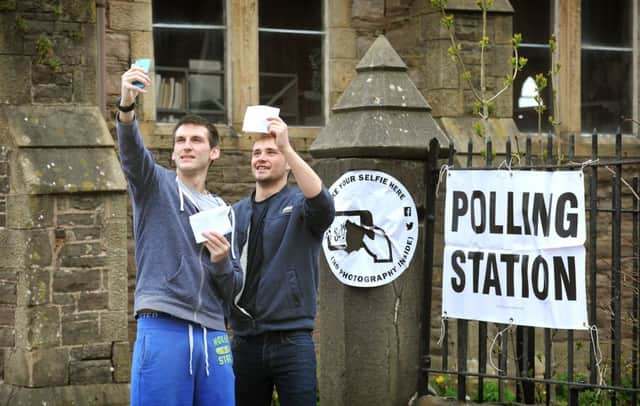Election 2015: How social media spiced up this most modern of elections


It’s a line from The Go-Between, his novel about lost innocence, hypocrisy and Britishness.
But he could quite easily have been writing about general election campaigns.
Advertisement
Hide AdAdvertisement
Hide AdThe 2015 election has been billed as the most unpredictable in living memory and some people are calling it the first ‘social media election,’ depending on who you speak to.
What is not in doubt is the fact that political campaigning, and the way it is covered in the media, has changed beyond all recognition during the past decade.
The first general election I covered was in 2001 when Twitter and Facebook were just a twinkle in a digital eye.
Advertisement
Hide AdAdvertisement
Hide AdBut since then social media has changed the political landscape. All the political parties now have social media strategies and invest in online campaigns, something that simply didn’t exist when Tony Blair and John Major went toe to toe back in 1997.
During this year’s election campaign there have been millions of tweets and Facebook posts, not to mention all the online political blogs.
Twitter users, for instance, sent 1.5 million messages about the first TV election debate at the start of April.
This is a huge number, although it’s still less than a fifth of the total number of people who actually watched the TV broadcast.
Advertisement
Hide AdAdvertisement
Hide AdEven so, there is little doubt that election campaigns dance to a different tune these days.
In the past when political heavyweights like Harold Wilson and Margaret Thatcher were out on the campaign trail they could be, and frequently were, harangued by members of the public.
Now they are more likely to be stopped and asked to pose for a “selfie”.
Even as recently as the last election in 2010 most people hadn’t heard of “selfies”, whereas now they already seem as much a part of the campaign as any manifesto.
Advertisement
Hide AdAdvertisement
Hide AdThe big political parties have been quick to tap into social media as a way of trying to engage with younger voters.
The aim is to create a viral moment like Russell Brand’s interview with Labour leader Ed Miliband, which has been watched more than a million times on YouTube.
During the past six weeks Party hashtags and leader names have been used millions of times.
We have also seen all manner of subjects trending on Twitter, from #Milifandom and #Cameronettes to the raft of celebrity political endorsements and counter-endorsements.
Advertisement
Hide AdAdvertisement
Hide AdSoon, though, it will all be over bar the shouting, of which there could be a great deal depending on how everyone has voted.
It’s been said that politicians campaign in poetry and govern in prose, but there has been precious little poetry on show during this particular election campaign.
Perhaps we shouldn’t be surprised. After all it’s difficult to write a decent poem in just 140 characters.